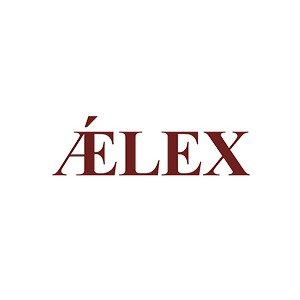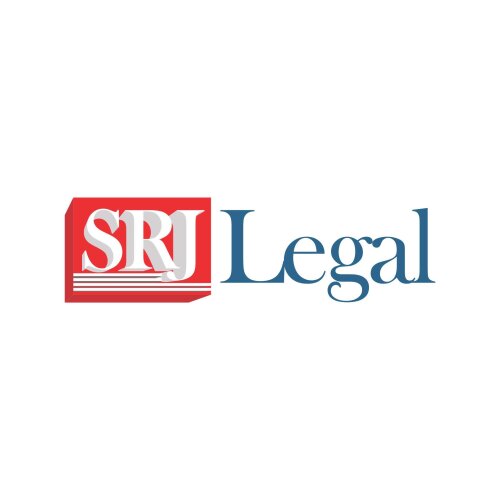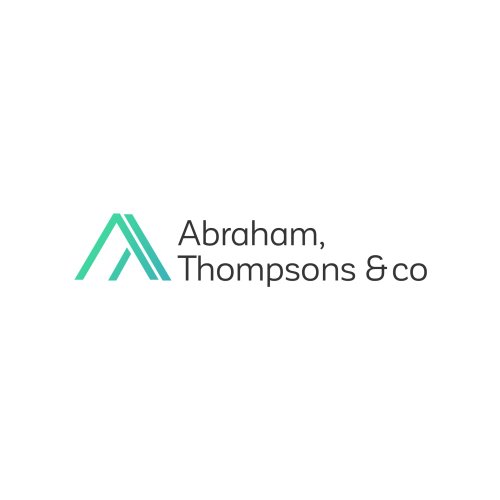Best Cyber Law, Data Privacy and Data Protection Lawyers in Lagos
Share your needs with us, get contacted by law firms.
Free. Takes 2 min.
List of the best lawyers in Lagos, Nigeria
Legal guides written by Adeola Oyinlade & Co:
- Procedure and Requirements for Work Permit and Visas in Nigeria
- The Step-By-Step Procedure of How to Apply for Microfinance Bank License Online in Nigeria
- How to Ensure the Smooth Recognition and Enforcement of Foreign Judgments in Nigeria
Nigeria Cyber Law, Data Privacy and Data Protection Legal Questions answered by Lawyers
Browse our 3 legal questions about Cyber Law, Data Privacy and Data Protection in Nigeria and read the lawyer answers, or ask your own questions for free.
- Is it proper for someone to be sending pictures of another over events without the person been notified
- A woman sending pictures of a man all over social media, accusing him of having affairs with other women, is it proper
-
Lawyer answer by Grupo Devoument Abogados
No, it is not proper—and in many countries and jurisdictions, what you're describing could be considered illegal, especially if the photos are shared without consent and with the intent to shame, defame, or harass.Here’s a breakdown of the situation and...
Read full answer - People are misusing My Name
- have issues On Social Media People Are Misusing My Name Especially On Facebook
-
Lawyer answer by Islaw - Expert Lawyers
Hi, you need to file complaint and report this matter immediately to the cyber agency to avoid complications. For proper assistance we need more details thanks. ISLAW FIRM
Read full answer - Please is it possible to make use of someone picture for advert without her permission
- Can I get the person suit
-
Lawyer answer by Hans Offia & Associates
The technical answer is no, you cannot use someone's picture for advert purposes without their permission, particularly if they're the copyright holder of such image. However, if the image was gotten on a stock image site which let you use...
Read full answer
About Cyber Law, Data Privacy and Data Protection Law in Lagos, Nigeria:
Cyber Law, Data Privacy, and Data Protection are rapidly growing fields in Lagos, Nigeria. These laws govern the use, sharing, and protection of digital information, as well as the prevention and punishment of cybercrimes. With the advancement of technology, it is crucial for individuals and businesses to understand and comply with these laws to ensure the security and privacy of their data.
Why You May Need a Lawyer:
There are several situations where seeking legal help in Cyber Law, Data Privacy, and Data Protection in Lagos, Nigeria may be necessary:
- If your personal or business data has been compromised or stolen.
- If you suspect your privacy rights have been violated on the internet or through digital platforms.
- If you need assistance in drafting and reviewing contracts or policies related to data protection.
- If you have been accused of cybercrimes or need to defend yourself against such accusations.
- If you require legal advice on how to comply with data protection regulations in your business operations.
Local Laws Overview:
In Lagos, Nigeria, the primary legislation governing Cyber Law, Data Privacy, and Data Protection is the Cybercrimes (Prohibition, Prevention, Etc.) Act of 2015. This law criminalizes various cyber offenses, including unauthorized access to computer systems, cyber fraud, identity theft, and cyber-stalking. It also outlines punishments for these offenses.
In addition to the Cybercrimes Act, the National Information Technology Development Agency (NITDA) issued the Nigeria Data Protection Regulation (NDPR) in 2019. The NDPR establishes guidelines for data protection and outlines obligations for data controllers and processors, including principles for lawful data processing, consent requirements, and security measures.
Frequently Asked Questions:
Q1: Is cyberbullying considered a crime in Lagos, Nigeria?
A1: Yes, cyberbullying is a crime under the Cybercrimes Act. It includes any form of harassment or intimidation using electronic communication platforms, and perpetrators can face legal consequences.
Q2: What rights do individuals have regarding their personal data?
A2: Individuals in Lagos, Nigeria have the right to know what personal data is being collected and how it will be used. They also have the right to access, correct, and delete their personal data and can withdraw consent for data processing.
Q3: How can businesses ensure compliance with data protection regulations?
A3: Businesses should implement security measures to protect personal data, conduct privacy impact assessments, obtain individuals' consent for data processing, and appoint a data protection officer. It is advisable for businesses to consult with legal experts to ensure full compliance.
Q4: What should I do in case of a data breach?
A4: In the event of a data breach, you should immediately notify the affected individuals and the appropriate regulatory authorities. Taking steps to mitigate the breach and seeking legal advice to navigate the aftermath is crucial.
Q5: Can I be held liable for cybercrimes committed by others using my internet connection?
A5: Under the law, internet subscribers have a duty to ensure their networks are not used for cybercrimes. If you fail to take reasonable steps to prevent such activities, you may be held liable. It is crucial to secure your internet connection and report any suspicious activities to the authorities.
Additional Resources:
If you need further guidance or legal assistance in Cyber Law, Data Privacy, and Data Protection in Lagos, Nigeria, consider reaching out to:
- National Information Technology Development Agency (NITDA) - www.nitda.gov.ng
- Nigeria Communications Commission (NCC) - www.ncc.gov.ng
- Nigeria Cybersecurity and Digital Forensics Institute (CDFI) - www.nigeriacyberinstitute.org
Next Steps:
If you require legal assistance or advice in Cyber Law, Data Privacy, and Data Protection in Lagos, Nigeria, it is recommended to contact a qualified lawyer specializing in this field. They will assess your specific situation and provide you with the necessary guidance to protect your rights and navigate the legal landscape effectively.
Lawzana helps you find the best lawyers and law firms in Lagos through a curated and pre-screened list of qualified legal professionals. Our platform offers rankings and detailed profiles of attorneys and law firms, allowing you to compare based on practice areas, including Cyber Law, Data Privacy and Data Protection, experience, and client feedback.
Each profile includes a description of the firm's areas of practice, client reviews, team members and partners, year of establishment, spoken languages, office locations, contact information, social media presence, and any published articles or resources. Most firms on our platform speak English and are experienced in both local and international legal matters.
Get a quote from top-rated law firms in Lagos, Nigeria — quickly, securely, and without unnecessary hassle.
Disclaimer:
The information provided on this page is for general informational purposes only and does not constitute legal advice. While we strive to ensure the accuracy and relevance of the content, legal information may change over time, and interpretations of the law can vary. You should always consult with a qualified legal professional for advice specific to your situation.
We disclaim all liability for actions taken or not taken based on the content of this page. If you believe any information is incorrect or outdated, please contact us, and we will review and update it where appropriate.

















